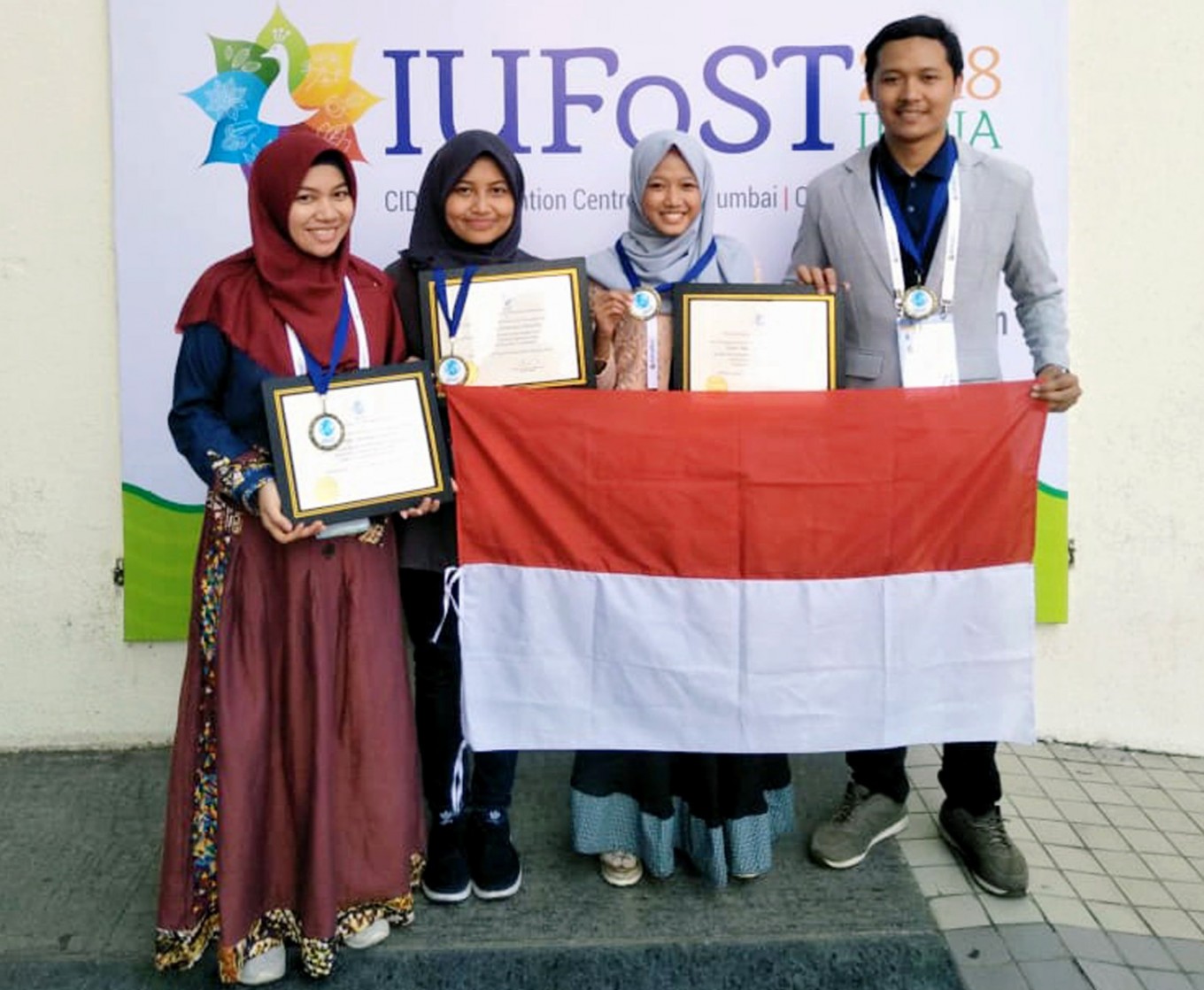Popular Reads
Top Results
Can't find what you're looking for?
View all search resultsPopular Reads
Top Results
Can't find what you're looking for?
View all search resultsBrawijaya University students win gold in 2018 IUFoST
Change text size
Gift Premium Articles
to Anyone
 Alfisah Nur Annisa (left), Widya Nur Habiba (second left), Annisa Aurora Kartika (second right) and Joko Tri Rubiyanto (right) pose with the awards they won in the 2018 International Union of Food Science and Technology (IUFoST) Product Development Competition in Mumbai, India, on Oct. 27. (Courtesy of/Faculty of Agricultural Technology, Brawijaya University)
Alfisah Nur Annisa (left), Widya Nur Habiba (second left), Annisa Aurora Kartika (second right) and Joko Tri Rubiyanto (right) pose with the awards they won in the 2018 International Union of Food Science and Technology (IUFoST) Product Development Competition in Mumbai, India, on Oct. 27. (Courtesy of/Faculty of Agricultural Technology, Brawijaya University)
S
tudents from the Brawijaya University’s School of Agricultural Technology in Malang, East Java, won three out of the five gold medals contested at the 2018 International Union of Food Science and Technology (IUFoST) Product Development Competition.
The event was held On Oct. 23-27 at the CIDCO Exhibition Center in Mumbai, India. It is a biennial world food product development competition that started in 1962.
Themed, 25 Billion Meals a Day by 2025 with Healthy, Nutritious, Safe, and Diverse Food, the competition drew more than 3,000 contestants from 74 countries.
Widya Nur Habiba, Alfisah Nur Annisa, Annisa Aurora Kartika and Joko Tri Rubiyanto from Brawijaya University won in the Best Oral Presentation, Best Commercial Content and Best Overall Project categories.
They submitted for the event analog rice made from local sago, corn and umbi porang (elephant foot yam). The rice is named NABU, which stands for nasi berbahan dasar sagu (sago-based rice).
Read also: Jakarta student shares stories from Summer Science Program in US
Team leader Widya Nur Habiba said NABU was more nutritious and had a lower glycemic index level than regular rice to prevent malnutrition and a higher risk of diabetes.
She added that the main ingredients were easy to find in Indonesia and the rice could grow in extreme conditions.
Widya also said that NABU could be consumed as an alternative to regular rice in order to reduce rice imports.
“The analog rice can be seen as a solution for famine, as what happened to the Asmat tribe in Papua in January 2018,” she added. (iru/wng)






